Posted in Blog, Facilitation by Jo North
Facilitation Checklist for Workshops and Sprints
A facilitation checklist is such a great item to add to your toolkit.
As a creative facilitator, you’ll often have stupendous know-how and a huge volume and complexity of activities to plan and implement. Simply using a great facilitation checklist can massively up-level your ability to consistently deliver for yourself and your clients and delegates. You’ll be well prepped to faciltate smoothly, reliably and efficiently every time.
Your Facilitation Checklist – a Standard Business Process
I’ve found using a great checklist as part of our standard business process for creative facilitation has been invaluable when it comes to consistently ensuring great delivery, delegate experience and achievement of our clients’ goals.
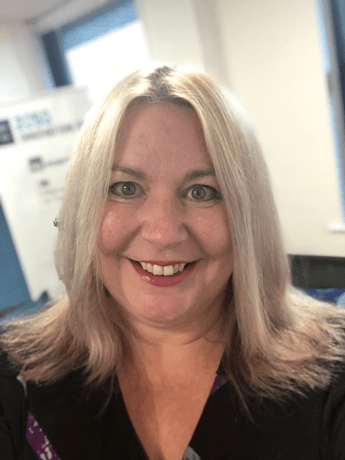
Here are my top tips on why it’s important to use a facilitation checklist, the key things to include, and how to use it. If you’d like a free copy of the full, actual checklist that we use, you can download it right now. I’m confident that you’ll find it useful. It will really help you to streamline your work.
What is a Facilitation Checklist?
A checklist is simply a list of things that you need to think about and do to plan and deliver your creative facilitation workshops and design sprints.
It includes all the fundamental items that you need to prepare for, which are generally the same questions and considerations for every event, regardless of the client, brief or duration.
But just because the checklist includes all the fundamentals doesn’t mean it should be overlooked. Quite the opposite. It should be the backbone of your planning and preparation activities.
As human beings, we have limited capacity for memory, attention and focus, so your checklist is actually an essential piece of your creative facilitation toolkit.
Benefits of Using Your Creative Facilitation Checklist
Did you know that the simple process of using checklists, in any planned activity, has these benefits?
1. Organization
Checklists help you to make sure that you don’t forget anything, and that you don’t miss out any key steps.
2. Motivation
Checklists make your progress visible, which is motivating because the positive results will encourage you to do more.
3. Anxiety Reduction
If you’re prone to worry or anxiety about your events, especially if you are new to creative facilitation, using a checklist helps you. It breaks the big, overall task into small actions. You can tackle these one at a time, leading to less overwhelm.
Having everything all laid out is reassuring because you know that you’re doing all the right things.
4. Time Saving
Checklists save you time because they streamline your processes.
Also, if you run lots of events and are planning several at once, you can bundle up elements of each event checklist to “batch produce” certain tasks. For instance, if you need to order materials, you can place a single order for all the events you’re working on.

5. Creativity
Checklists remove the need to remember the basics, so that you can declutter your mind and instead focus on the more added-value, creative elements of your workshop and sprint planning.
6. Delegation
Because the checklist breaks down your event preparation task-by-task, it helps you to identify parts of the process that you can delegate to people in your team, or perhaps to a virtual assistant if you work on your own.
7. Lower Risk of Error
Checklists give you a process that helps you avoid making mistakes or errors.
One of my favourite books is The Checklist Manifesto: How to Get Things Right by Atul Gawande. It’s a compelling read. Gawande shows how breaking down complex, high pressure tasks into small steps can radically improve everything from airline safety to heart surgery survival rates.
Your checklist will minimize the risk of any errors in your workshop planning and delivery.
8. Customer experience
Because your checklist includes many elements that are important to the customer, it helps you to achieve exceptional levels of customer experience.

Boost Your Confidence and Stress Less with Your Facilitation Checklist
As you can see, whether you’re a regular creative facilitator or only facilitate from time-to-time, using the facilitation checklist will save you a lot of time. It will also make your planning slicker and also be a confidence-booster, because you’ll know that you’re ready and well-organized.
Designing and facilitating an innovation sprint, strategy workshop or design thinking event can be challenging, especially when the event will last for a day or more. By having a checklist, you can relax more before your creative facilitation event. It will save you a lot of time and hassle! And it will work either for something that you’ve decided to do yourself for your own team, or for a session you’re running on behalf of an internal or external client.
By having a checklist, you can relax more before your creative facilitation event. It will save you a lot of time and hassle! Share on X
Download your checklist now
What’s On My Creative Facilitation Checklist?
My creative facilitation checklist is divided into these sections:
- The brief
- Dynamics and practicalities
- Getting things done
Use this checklist every time you plan an event to make sure that you are clear upfront about what you’re aiming to achieve and why. Time spent at this stage is a very good investment. It will reduce the likelihood of misunderstandings and disappointments.
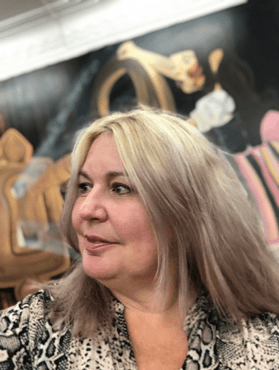
Here are the headlines of what I’ve included in my checklist. For the full pdf version, complete with editable tick-boxes, get your free download here and it will be in your inbox in moments!
The Brief
1. What is the specific purpose of the event?
2. Why have you chosen to do the event at this time / now?
3. Who is expected to attend, and why?
4. Where will the event be held, and why?
5. Have any previous events been held on this or a similar theme, and what were the outputs (so that you can acknowledge and build on this as appropriate)?
6. By the end of the session, what do you want the attendees to:
- Know?
- Feel?
- Think?
- Do?
7. Are there any factors that will help the achievement of the know, feel, think and do outcomes? And are there any that could hinder?
Once you have all this information, it is important to challenge yourself and your client to ‘test’ your thinking before detailed design happens and invitations are sent out. Use the Dynamics and Practicalities section of your checklist download to do this.
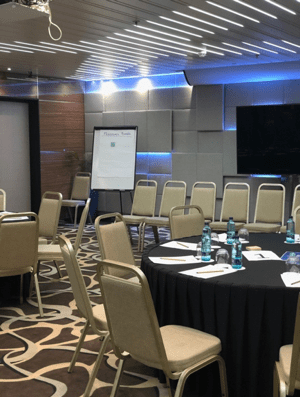
Dynamics and Practicalities
Dynamics and practicalities to consider are:
Who’s Attending?
Will you have the right people in the room? You will need experts, a positive disruptor or two, some people with fresh perspectives as well as some with experience, and perhaps, depending on what your event is for, a decision-maker.
Decision-making
Will there be any ‘hierarchy’ in the room, or will that be placed aside for the session to allow freedom of discussion and idea generation?
Quite often, I will suggest that hierarchy is ‘parked’ for discussions, idea generation and problem-solving, but that someone is named as ‘decision-maker’ for when something important, such as shortlisting key priorities, or signing off investment or actions, is needed.
The decision-maker is not always the most senior person present. It’s worth thinking about who that will be beforehand and checking it out with them, and your event sponsor.
Set Realistic Expectations
Have you got enough time to achieve your objectives? Make sure that your aims are clear and that you’re not being overly ambitious about what you can achieve in the time you have, and that you’re not trying to answer too many questions at once. Clarity and focus are key.
Venue Check
Check the venue. Sometimes, we need to just work with what’s available, but ideally you will have:
- Space and also ‘permission’ to stick flip charts to the wall.
- Enough space for everyone to move about.
- The facility to set up tables ‘cabaret’ style in small groups, rather than in rows or boardroom layout, or however you want to set up your space.
- A room with natural light.
- Access to reasonable breakout areas and, ideally, self-serve refreshments on tap.
- Snacks and a lunch that are light and energising, rather than stodgy and fatigue-inducing.
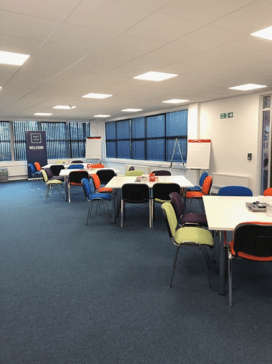
If you are bringing a lot of stuff and are travelling by car, it’s a good idea to request a parking space be reserved as near to the venue as possible to help you set up and pack away.
After all this, create a session invitation and agenda for attendees that creates a positive perception of the day, and an anticipation that it will be a great event that they really want to be part of.
Getting Things Done
The Getting Things Done part of may Facilitation Checklist is about getting all the contents and logistics together. This goes from what you need stationery and equipment-wise, to liaising with the venue or event organizer. It also includes getting your content and schedules sorted. You’ll find all these steps inside my Creative Facilitation Checklist, which you can download here.
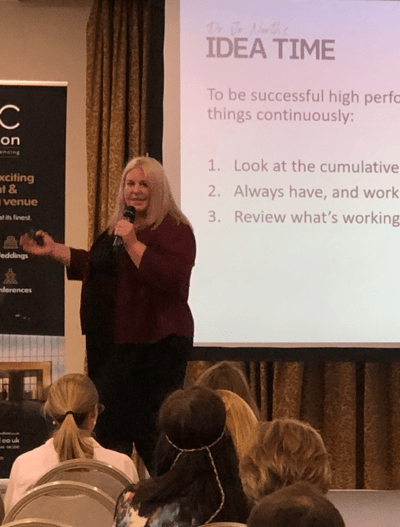
Going Further with Facilitation
Master Your Facilitation Skills with Advanced Techniques
To elevate your facilitation practice, go beyond the basics. It’s not just about guiding a discussion; it’s about mastering group processes and demonstrating leadership skill. One advanced strategy is to introduce critical thinking exercises that encourage the group to solve its own problems. This not only fosters a sense of agency but also drives the group toward a common goal. Have a look at my articles here on facilitating creative problem-solving workshops, business strategy sessions, strategic visioning workshops, design thinking and innovation sprints.
Fine-tune Open-Ended Questions for Better Engagement
Effective facilitation thrives on interaction. Open-ended questions are a game-changer in this aspect. Instead of asking questions that lead to ‘yes’ or ‘no’ answers, formulate your questions to prompt in-depth discussions. This tactic not only improves communication skills but also generates positive responses, thereby establishing a supportive environment.
Take a look at my article here for creative, open questions.
Make Flexibility Your Signature Leadership Skill
A common mistake in group facilitation is sticking rigidly to the plan. However, being able to adapt at a moment’s notice is a leadership skill that can make or break your workshop. Preparing a range of activities or discussion topics beforehand allows you to pivot easily, meeting the group’s needs as they evolve.
Craft Next Steps with Collaborative Tools
Once your workshop is nearing its end, it’s crucial to outline next steps to maintain momentum. Utilize visual representation tools like flowcharts or diagrams to collectively agree on what comes next. This helps with concrete planning and ensures that everyone is aligned with the agreed-upon objectives.
Tailor Your Communication Skills for Maximum Impact
Specific skills like active listening and body language often go unnoticed but are essential for effective facilitation. Read the room, adjust your tone and pace, and use these subtler aspects of communication to enhance the group’s engagement.
By incorporating these advanced techniques into your facilitation repertoire, you’ll not only improve your skill set but also offer a more enriching and productive experience for all participants.
Facilitation Checklist & What Next?
Would you like to access fresh ideas, tools, techniques and facilitation training for your knowledge exchange, innovation sprints, design thinking events and strategy workshops?
If so, join my free, private Facebook group, Idea Time for Workshop Facilitators.
It’s SO important to make every event count, engage your stakeholders and participants throughout your innovation journey, and keep your activities fresh, stimulating and effective. Share on X
It’s SO important to make every event count, engage your stakeholders and participants throughout your innovation journey, and keep your activities fresh, stimulating and effective.
My Idea Time for Workshop Facilitators free Facebook group helps you to design workshops that will make a positive impact. I also share how you can get your team or stakeholder network on board so that you get results – efficiently, creatively and effectively.
I’d love to work with you to take your creative facilitation success to the next level and beyond. If you’d like to have a chat in person, please do get in touch with me here. I’m looking forward to hearing from you!


